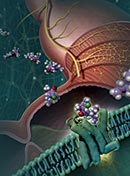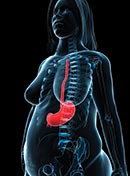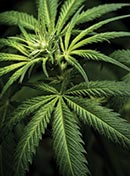|
NEW! Follow us on
 
Advertisement

|
 |
| Editor's Notebook |
Pathway to Provider Status
Medication adherence is the foundation of cost-effective healthcare. |
 |
| Counseling Pearls |
 A Review of Diabetic Gastroparesis for the Community Pharmacist A Review of Diabetic Gastroparesis for the Community Pharmacist
This condition is often suspected in poorly controlled patients who present with nausea, vomiting, bloating, abdominal pain, early satiety, or postprandial fullness. Management involves blood glucose control, nutritional support, and prokinetic and antiemetic use. |
 Standards of Care for GERD Standards of Care for GERD
While symptoms are generally bothersome, if left untreated, they can become more than just a nuisance and cause serious complications. Lifestyle modifications and acid suppressants remain first-line treatment for GERD despite limited data. |
| |
| It's the Law |
Legal Aspects of Biosimilars
The introduction of these agents necessitates an understanding of FDA and state regulations. |
| |
| Clinical Corner |
 Implications of Bariatric Surgery on Absorption of Nutrients and Medications Implications of Bariatric Surgery on Absorption of Nutrients and Medications
These procedures have increased significantly as a viable long-term treatment for severe obesity or obesity with certain comorbid conditions. Malabsorption of medications caused by surgical GI-tract changes is a potential problem. |
 Cannabinoid Hyperemesis Syndrome Cannabinoid Hyperemesis Syndrome
Chronic use of cannabis sometimes results in intractable nausea and vomiting. The only treatment that successfully resolves this condition is abstinence from cannabis, although haloperidol is being studied as a potential option. |
| |
| TrendWatch |
Ambulatory Care Services for Digestive Diseases
In 2009, a primary diagnosis of digestive disease led to 48 million ambulatory care visits. |
| |
| Educational Spotlight |
Care and Treatment of Dementia
As the population ages, the human and economic costs of Alzheimer's disease and other dementias are significant. |
Expanding Access to Naloxone: Role of the Pharmacist
To ensure safe usage, pharmacists must understand state regulations concerning distribution. |
Zika Virus and Its Effects in Pregnancy
Patient counseling and education are essential for successfully managing the current outbreak. |
| |
|
 |
| Newswire |
 |
One in Six U.S. Adults Takes Psychiatric Drugs
Alexandria, VA, and Ottawa, ON—
In a research letter published online by JAMA Internal Medicine, Institute for Safe Medication Practices and Risk Sciences International investigators noted that approximately one in six adults in the United States reported taking psychiatric drugs at least once in 2013. Data from the 2013 Medical Expenditure Panel Survey were used to calculate percentages of adults taking antidepressants; antipsychotics; and anxiolytics, sedatives, and hypnotics (ASHs). Antidepressant use was reported by 12% of participants, 1.6% reported antipsychotic use, and 8.3% reported filling prescriptions for ASHs. The use of psychiatric drugs increased with age, and women were more likely than men to report that they took psychiatric drugs. Use may be underestimated because prescriptions were self-reported. |
 |
Narcolepsy Drug Could Curb Food Addiction
Coventry, England—
Researchers at the University of Warwick have discovered that modafinil, which is used to treat narcolepsy and other sleep disorders, could also reduce the impulse for food in overweight persons. Physical addiction to foods high in sugar and fat can be a contributor to obesity. Impulsive behavior is a factor in food addiction, and because modafinil can also reduce impulsivity, researchers believe it may reduce the impulse for food. In a series of trials in 60 healthy men aged 19 to 32 years, subjects who took modafinil had a significantly lower level of impulsivity compared with those who took placebo or atomoxetine, another drug used for impulse disorders. Researchers theorize that modafinil could be even more effective for food addiction. |
 |
Teens' Use of Substances Other Than Marijuana Has Declined
Ann Arbor, MI—
According to a national study conducted by the University of Michigan, teens' use of drugs, alcohol and tobacco decreased significantly in 2016, at rates that are at their lowest since the 1990s. Marijuana use, which dropped sharply in 8th-graders and declined somewhat in 10th-graders, remained elevated in 12th-graders, however. The Monitoring the Future study, which has been ongoing for 42 years, surveys about 45,000 public-school and private-school students (in grades 8, 10, and 12) each year. This year's improvements were especially concentrated in 8th-graders and 10th-graders. The overall percentage of teens using any illicit drugs other than marijuana has declined gradually since the last half of the 1990s. |
 |
|
   |
| To subscribe to U.S. Pharmacist eFLASH, send your name, address, and email address to us by clicking here.
U.S. Pharmacist is a monthly journal dedicated to providing the nation's pharmacists with up-to-date, authoritative, peer-reviewed clinical articles relevant to contemporary pharmacy practice in a variety of settings, including community pharmacy, hospitals, managed also useful to pharmacy technicians, students, other health professionals and individuals interested in health management. Pharmacists licensed in the U.S. can earn Continuing Education credits through Postgraduate Healthcare Education, LLC, accredited by the Accreditation Council for Pharmacy Education (ACPE) as a provider of continuing pharmacy education. |
|
|